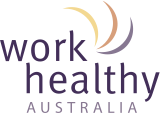
Returning to work after an injury is not just about physical recovery – it’s also about understanding and appreciating the human factors that influence healing. Suitable duties, also known as light or modified tasks, are a critical tool for helping workers recover while staying engaged in their roles (recovery through work).
Beyond addressing physical capabilities, recognising the broader human factors – including physical, cognitive, organisational, and psychosocial aspects – can make a significant difference in recovery outcomes.

Why human factors matter in recovery
Injury recovery is influenced by a range of human factors. While physical adjustments are often the focus, cognitive demands, workplace organisation, and psychosocial challenges play equally vital roles. Addressing these factors holistically ensures that suitable duties not only prevent physical strain but also support the worker’s overall well-being.
However, for some individuals, staying in their usual role (when safe) may contribute to faster recovery without needing specific job modifications. The key is understanding the type of injury and the individual’s recovery needs.
When suitable duties make the most impact
Some injuries particularly benefit from tailored duties that consider all aspects of human factors:
- De Quervain’s tenosynovitis and trigger finger: Physical adjustments, such as reducing repetitive hand movements, can address the strain on tendons. Psychosocial factors, such as providing reassurance and fostering a supportive team environment, can also help alleviate stress and build confidence during recovery.
- Tendinopathy: Introducing lighter tasks to prevent overloading injured tendons helps physically, while addressing cognitive factors – like providing clear instructions on graded loading can boost worker confidence and adherence to recovery plans.
The role of psychosocial factors
We often find that psychosocial factors, including workplace culture, interpersonal relationships, and mental well-being, are particularly influential in recovery. Workers who feel supported, understood, and valued are more likely to stay engaged and experience smoother recovery. Ignoring these factors can lead to fear-avoidance behaviours, increased stress, and longer recovery times.
Examples of psychosocial considerations include:
- Supportive workplace culture: Ensuring that supervisors and colleagues demonstrate empathy and understanding toward the injured worker.
- Clear communication: Providing transparent information about the recovery process and expectations for suitable duties.
- Stress management: Helping workers navigate stressors related to their injury, such as financial concerns or job security, which can hinder recovery.

How onsite clinicians address human factors
Onsite clinicians play a key role in addressing all categories of human factors during the return-to-work process:
- Physical factors
By conducting thorough task analyses, onsite clinicians ensure that suitable duties match the worker’s physical capabilities, minimising strain while promoting recovery. - Cognitive factors
Onsite clinicians are able to bridge the gap for workers returning from concussions and other conditions affecting cognitive function by tailoring duties to accommodate symptoms such as fatigue, memory challenges, or difficulty concentrating. They might recommend gradual reintroduction to mentally demanding tasks, shorter work periods, or frequent breaks to prevent cognitive overload. - Organisational factors
Onsite support helps align suitable duties with organisational workflows, ensuring that modifications are practical and sustainable with meaningful work. Clinicians also collaborate with supervisors to ensure suitable duties are practical and reasonable. - Psychosocial factors
Onsite clinicians address psychosocial challenges by building trust with injured workers, fostering a positive recovery mindset, and encouraging open communication between all parties involved. For example, if a worker is experiencing fear-avoidance behaviours, the clinician can provide education about pain management and recovery timelines to alleviate concerns.
Conclusion
When suitable duties are informed by a holistic understanding of human factors, they can make all the difference in recovery. By addressing physical, cognitive, organisational, and psychosocial aspects, organisations can create a supportive return-to-work environment that values the well-being of injured workers.
Onsite clinicians are uniquely positioned to identify and address these factors, ensuring suitable duties are not just about physical recovery but also about fostering a positive, inclusive workplace culture. Supporting employees in their journey back to work is an investment in both their health and the resilience of the organisation.
Sign up to our monthly enewsletter
"*" indicates required fields
